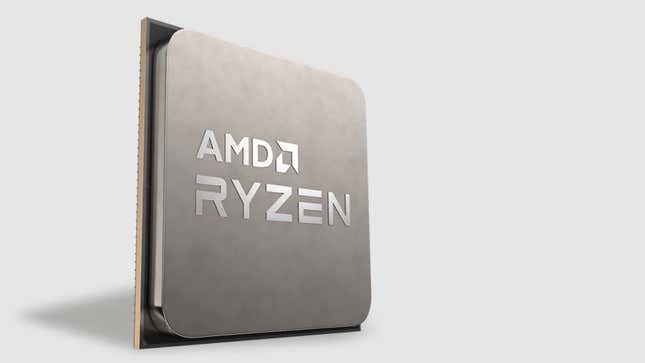
For anyone with an AMD CPU thinking about upgrading to Windows 11, you may want to hold off just a bit longer until AMD can patch a couple of bugs that can cause performance drops of as much as 15%.
In a recent notice published by AMD, the company called out two different issues that are affecting the performance of its CPUs in Windows 11. The first bug affects a CPU’s L3 cache and can cause latency to increase by as much as 3x, which can have a major impact on performance especially in apps or games that rely heavily on cache and memory speeds.
AMD claims the general performance hit from this bug is around 3 to 5%, though, in some fast-paced esports games, AMD says performance can be reduced by as much as 10 to 15%.
As for the other bug plaguing AMD CPUs in Windows 11, AMD didn’t provide any specific figures regarding its performance impact but it says there’s currently an issue with the UEFI CPPC2 scheduler that may cause the CPU to not always select the fastest core in certain situations. Notably, AMD does say that CPUs with more than eight cores and a TDP above 65 watts could suffer even greater diminished performance, while less powerful CPUs take a smaller hit.
These two bugs currently affect every AMD CPU compatible with Windows 11, which includes Ryzen 2000, Ryzen 3000, Ryzen 4000, and even the most recent Ryzen 5000 chips, along with a handful of enterprise EPYC chips.
AMD says it’s working with Microsoft to resolve the issues, with AMD promising that patches to address both bugs will be pushed out to users sometime later this month. Specifically, the fix for the L3 cache issue is expected to arrive as part of a Windows update, while the patch for the UEFI CPP2 issue will arrive as a separate software update.
So while I’ve generally enjoyed my time with Windows 11 so far (aside from annoyances about needing to sign in with your Microsoft account and changes to the Taskbar/Start Menu), it’s usually best to wait a few weeks or even a month or two before upgrading, so OEMs and app makers have time to find and fix any bugs they might not have caught prior to release.
[Update: 10/21] Today, AMD issued an update regarding the two major performance bugs for AMD CPUs in Windows 11. Users suffering from slow performance due to L3 cache latency should be able to install a patch via Windows Update, while the UEFI CPPC2 issue can be fixed via an AMD Chipset Driver update.